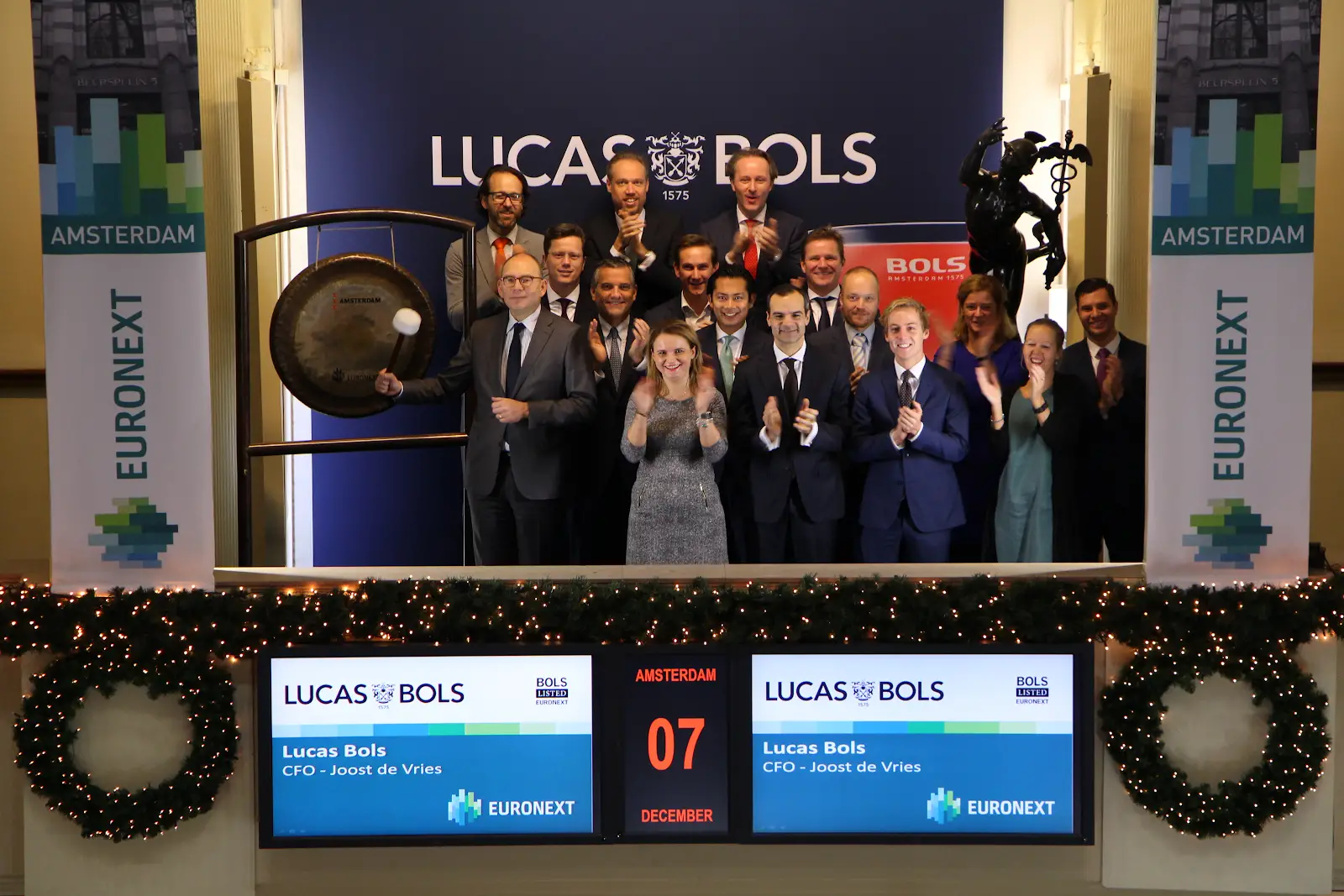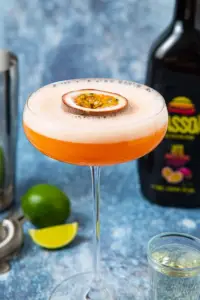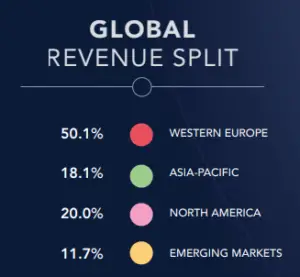Lucas Bols (AMS: BOLS) is the oldest distillery brand in the world, it was founded in Amsterdam and dates back to 1575. The company has over 25 different brands with a regional and global presence, its products are sold in over 110 countries. Its range of products, which the company has been producing since 1664.
It is acclaimed worldwide and it stands as the number one Genever around the world. In 2007, Lucas Bols led a marketing effort to promote its products creating Bols Bartending Academy, where it showcases its brands to bartenders and consumers. It also opened The House of Bols in Amsterdam, where it provides visitors with a Cocktail and Genever Experience. It has over 50,000 visitors every year, according to its annual report.
Passoã Acquisition
Around 2016, Lucas Bols added Passoã to its brand portfolio, announcing a joint venture with Rémy Cointreau (REMYF), a decision that has been a great tailwind for the company. Lucas Bols acquired a 7% interest in Passoã SAS, taking full operational and financial control. The agreement contemplates an option to buy the remaining interest Rémy Cointreau holds, for €71 million. As of March of this year, the Passoã entity accumulated €20.2 million. The transaction is expected to be completed in early December, as the company already has the financing in place for the remaining €50 million.
Pornstar Martini
In recent years, the Pornstar Martini Cocktail has gained some notoriety, despite its controversial name. The cocktail contains passion fruit liqueur and is currently the most searched cocktail on the internet. Passoã is the number one passion fruit liqueur sold around the world and has seen its sales increase at a fast pace. It is now present in over 50 countries. The growth has been mainly driven by the US and UK. The Pornstar Martini is now the number one cocktail sold around the country, outpacing the Mojito. This has allowed Lucas Bols to grow, especially internationally.
Source: Greedygourmet
In 2017, in less than six months after the joint venture was established, Lucas Bols reported an increase in revenues of 10.5%, and the net profits soared 28.6%. Passoã accounted for €5.1 million in revenue, representing 6.3% of the total sales in just six months. The passion fruit liqueur also helped to boost Lucas Bols' strong performance in 2018, when the revenues rose by 14.5% to €92.2 million. The company also managed to increase its profits by 35.4%. As it has expanded the distribution of Passoã in the U.S. from 15 to 35 states. Currently, it is present in 45 different states across the U.S, growing by more than 20%.
COVID-19
The disruption created by the virus has affected many sectors across the board. Restaurants and bars were closed and their operations are still restricted. While some have reopened, the number of customers is still well below the pre-pandemic times. This has significantly affected Lucas Bols' business. Given the fact that most of their products are sold in Bars and Restaurants. The disruption felt across the supply chain has also affected its operations, having a huge impact on the company’s results. The situation will impact the results in the short term, until the end of 2021. Once things normalize, we should see the company return the performance it has delivered in the past. As a result of its high gross margins, of over 50%, the company will be able to weather the situation.
Fundamental Analysis
The stock price has seen a tremendous move downward since March since its results are expected to continue to be negatively affected by the virus. In the previous years, it managed to increase the book value per share and is trading at around a 50% discount to book. Despite the inconsistency, the FCF per share has been able to remain above €1 per share. Moreover, with a P/S ratio of 1.15, the stock seems to be undervalued. CAPEX has remained low, under 3% of the total sales, which shows that the growth the company achieved in the past was not capital intensive.
Despite the relative undervaluation, the earnings of the company should be lower in the coming year. As it adjusts to the lower demand of its products, and to the disruption felt all across the supply chain. In March, the company saw its sales decline close to 30%, and this impact was mainly felt in the global brands' segment. For the final year, ending in March, the results show a decrease of 9.7% in EBIT and 3.5% in revenues, despite the increase of the Operating FCF by 33.1% to €15.7 million.
The management’s dividend policy is usually to distribute 50% of the company’s net profit. Due to the disruption created by COVID-19, the company has recently suspended its interim dividend. It is also refraining from proposing a final dividend. With the intent of protecting its cash position, as it completes the Passoã SAS transaction.
Risks
With the acquisition of Passoã SAS, the company will increase its long-term debt by nearly 100%. The company currently has nearly €50 million in existing long-term debt, maturing in 2023. By increasing its long-term debt, FCF generation will be substantially lower in the coming years, as the company completes the acquisition.
The challenges COVID-19 has presented will impact the company’s operations in the short term. Sales are mainly driven by its global brands' segment, representing 82% of gross profit. It is very likely that negative earnings will impact the results in the next half year. Due to a lower demand and supply disruption created by the virus. Revenues and earnings will be lower, and with the added debt, this could put some pressure on the stock price.
Another thing to keep in mind is the fact that the company is committing a lot of capital to complete the Passoã SAS transaction. The long-term growth prospects are highly dependent on the sales of just one brand. The popularity the liqueur has gained in recent years may fade going forward. Consumer patterns in the liqueur sector tend to be stable. But at the same time, the transaction makes the company dependent on a fad that may pass.
Conclusion
Despite being a small player in the spirits and liqueur market. The company has an interesting story and a portfolio of globally recognized brands that hold intangible value. In the past, it has managed to increase the gross margins and has been able to grow at a decent pace in different markets. It is not a very capital-intensive business. This allows for great profitability and low CAPEX. The short-term prospects are negative and will remain until the end of the year. Once things return to normal, the company should easily see its revenues rise to the pre-COVID-19 levels and should deliver strong results.
Monitoring the stock price and results seems to be the best option at this point. Since there is potentially more downside in the price. Once the company completes the Passoã SAS acquisition, results should also improve. Lucas Bols is expected to complete the Passoã SAS transaction by the end of the year. As we have seen in the past, a recession may not have a big impact on spirit and liqueur sales. With a Price/CF under 6x and a P/E ratio under 12x, the stock seems undervalued.
We have no position in the stocks mentioned. Read our disclosure.
Featured image source: Euronext



